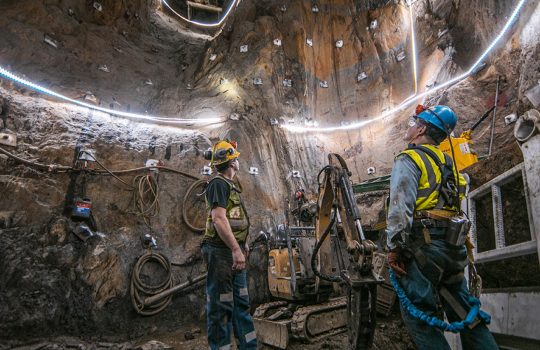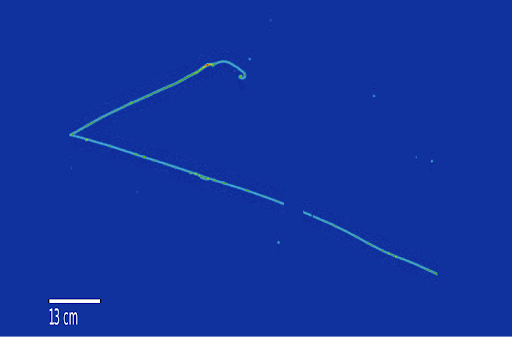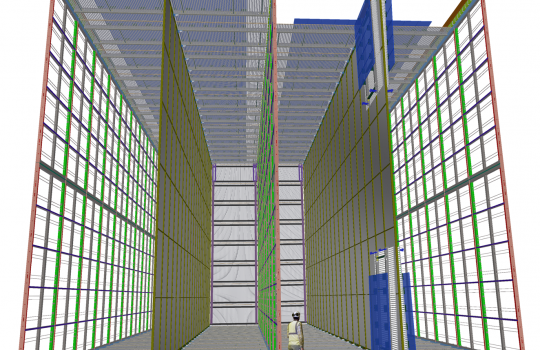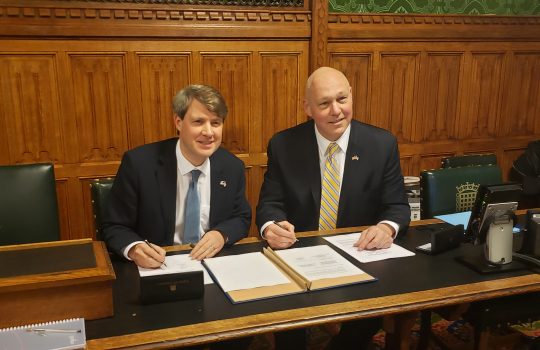LBNF/DUNE pre-excavation work continues above and below ground
- Deep Underground Neutrino Experiment
- DUNE
- LBNF
- Long-Baseline Neutrino Facility
- neutrino
- Sanford Lab
- Sanford Underground Research Facility
- South Dakota
From Black Hills Pioneer, Feb. 19, 2020: Data from the Deep Underground Neutrino Experiment could help physicists explain the origin of matter, witness a never-before-seen particle decay and better understand how black holes form in space. To prepare for this groundbreaking science, a major construction project is under way to ready the Sanford Underground Research Facility for its role as the far site of Fermilab’s Long-Baseline Neutrino Facility.




